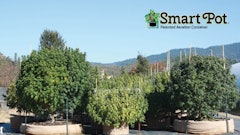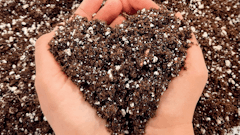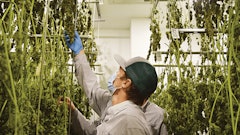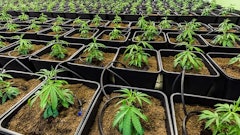
This article originally appeared in the September 2017 print edition of Cannabis Business Times. To subscribe, click here.
Thirty years ago, Kerrie joined with other local Colorado farmers to found the wildly popular Boulder County Farmer’s market. Sustainability, Slow Food, community and, of course, organic growing were the passion and dinner topics of the day. Today, these same ideas are just as good as they were back then: Organic growing is again a topic of great passion and energy.
Today, however, in other ways, we are a world away from those days, and the plans people discussed over beers about making the world sustainable and organic have materialized. Organic is a lifestyle, and Certified Organic is a major marketing lever in the food marketplace. But on the cannabis side, growers have been forced into many unsustainable practices due to regulations stipulating where and how cannabis can be grown.
The organic lever is one a lot of cannabis growers want to pull, but can’t become Certified Organic because the U.S. Department of Agriculture (which oversees organic certification in the United States), as a department of the federal government, currently says no to cannabis and organic certification.
We’ll eventually find a standard term to use to market our organically grown products. But, while some people worry about what it’s called, other folks who can farm outdoors have not only the opportunity, but the ability to make organically grown cannabis the standard in low-cost production, and all they need is land, and water, and to pay attention to the organic equation.
To read the full article in Cannabis Business Times' September issue, click here.
Top photo: © stevanovicigor | iStockphoto.com




















